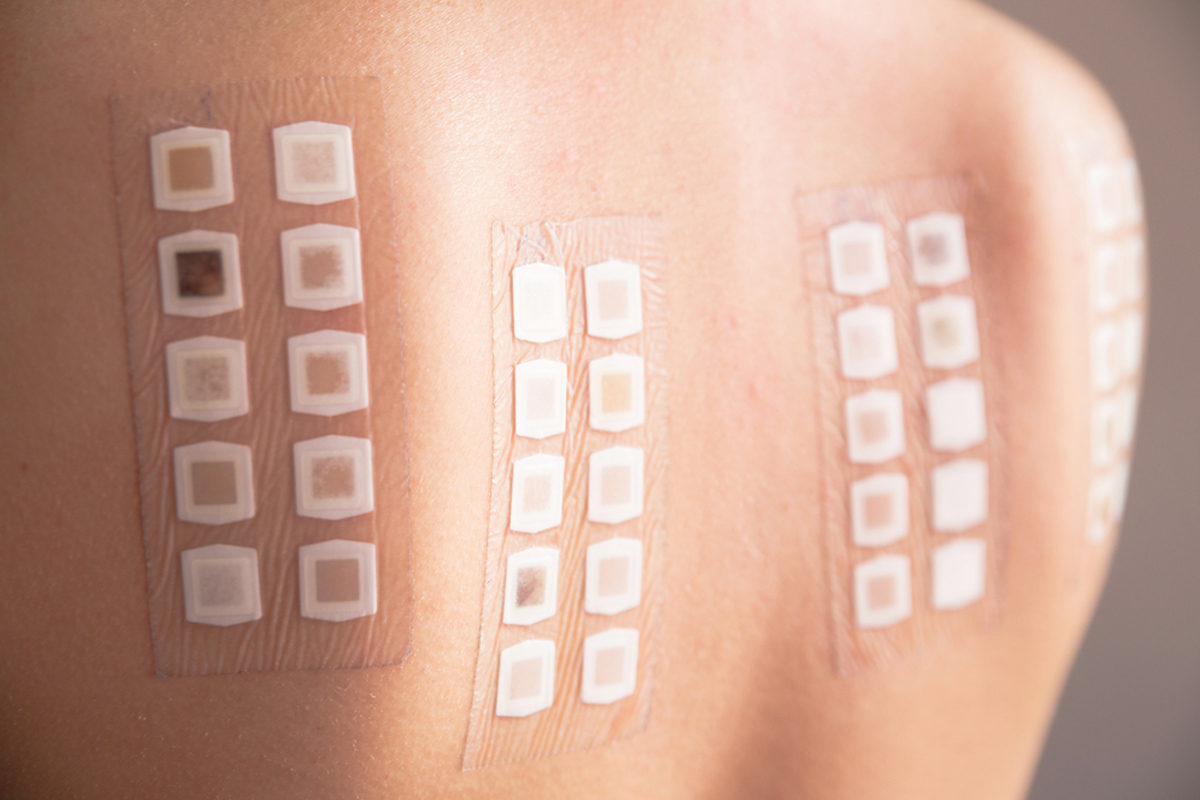Have you ever had a rash that just wouldn’t go away? You’ve tried putting medicine on it but nothing seems to cure it? You may be allergic to ingredients in your hair dye, lotion or jewelry.
Many people don’t know they have an allergy because reactions are often delayed. Although we can’t make you less allergic, we can determine what you’re allergic to so you can avoid products with those ingredients in the future.
What is patch testing?
Patch testing involves applying a purified allergen to a person’s skin to see if it causes an allergic reaction. Typically, 8 to 10 small stickers are placed on the patient’s back for 24-48 hours. The stickers must stay dry until they are removed and analyzed.
People who come in for patch testing should not apply any skincare products to their back. They should also bring in any cosmetics, shampoos, lotions and other products such as jewelry or footwear that regularly come in contact with their skin.
In most cases, a person will come to our office with an itchy rash that won’t go away. Suppose the rash is on a person’s eyelid. Patch testing tells us if they’re allergic to a substance in their makeup or skincare products.
If a sticker with a certain allergen turns red and becomes inflamed, and that allergen is found in the person’s makeup, lotion or moisturizer, we can pinpoint the cause of the problem.
What types of tests are performed?
Patch testing can be very specific depending on a person’s occupation, environment and activities. We start with broad tests and then tailor them to the individual.
A general patch test, called the North American 80, is performed first. If we notice inflammation and redness from this test, we can perform more specific tests to focus on certain ingredients based on the person’s lifestyle. For example, an auto mechanic would be tested much differently than a hairdresser.
Once we’ve identified the cause of the allergic reaction, we provide the patient with the name of the ingredient, as well as any aliases that may be used by various manufacturers, so the patient knows what to look for when shopping for new products. We also provide a list of products that are safe to use.
If you’re concerned you might be allergic to a product you’ve used, contact us today to schedule an appointment.


